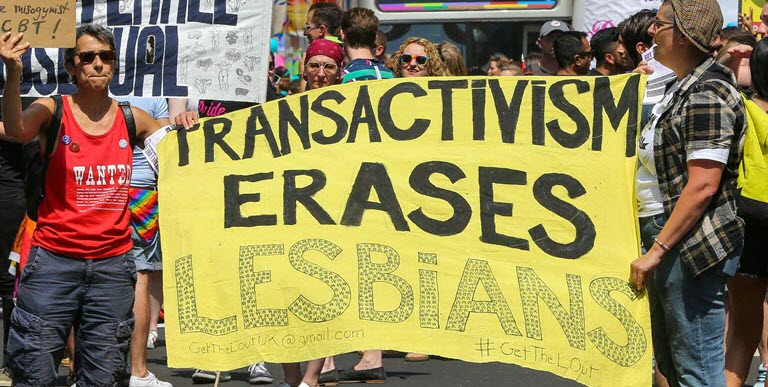BECAUSE OF THE CORONAVIRUS WE WILL BE LIVE STREAMING ALL OUR FORUMS AT THE USUAL TIME - CLICK THE LINK UNDER EACH DESCRIPTION TO PARTICIPATE AT THE SCHEDULED TIME AND JOIN OUR EMAIL LIST FOR NOTICES AND UPDATES
Forum 1 - Sat 28 March
THE CASE FOR FREE SPEECH
Just what is the case for free speech? Philosophers have tackled this in a variety of ways. Some have grounded their argument in what are termed natural rights, inalienable gifts of God or inferences from nature, possessed by all people just by virtue of their humanity, and nowadays often conflated with human rights. Our speaker will give reasons for scepticism about natural rights of any sort, including a right to free speech. Instead, he will make what philosophers call a consequentialist case that stresses the benefits for society of free speech, and the deleterious effects of its absence. He will finish by noting some disturbing trends for free speech in the Anglosphere.
Jim Allan is Garrick Professor of Law at the University of Queensland and has published widely on legal philosophy and constitutional law, including in all the top English language legal philosophy and constitutional law journals in the US, the UK, Canada and Australia. He has figured prominently in public debate on free speech issues.
To join click the live streaming link at 4 pm on the day, or click the same link after the event to watch the proceedings.
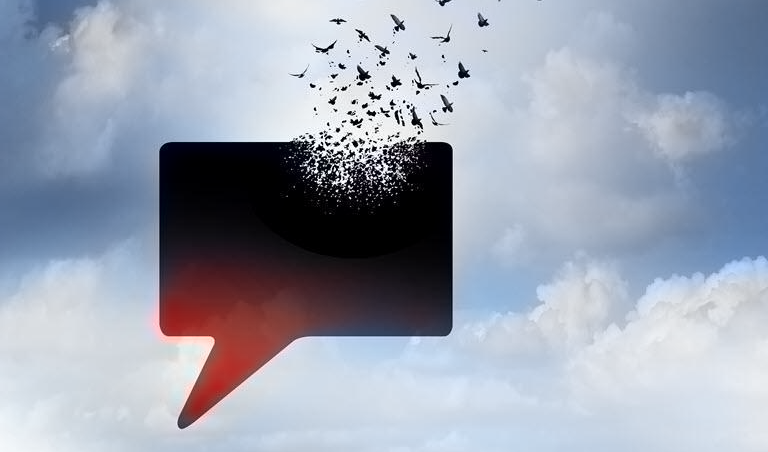
Forum 2 - Sat 11 April
DOES FREE SPEECH INCLUDE FREEDOM OF HATE SPEECH?
As a liberal society, we prize freedom of speech. But what is freedom of speech? And does freedom of speech extend to freedom of hate speech? In this talk I take an influential view about the nature of free speech and apply it to hate speech. It turns out that, in addition to familiar equality-based arguments for restricting hate speech, there is also a free speech argument for not permitting (some) hate speech.
Caroline West is a Senior Lecturer in Philosophy at the University of Sydney. Her main areas of interest are in metaphysics (especially personal identity); ethics; political philosophy; philosophy and psychology of happiness and well-being; applied ethics; and feminist philosophy.
To join click the live streaming link at 4 pm on the day, or click the same link after the event to watch the proceedings.
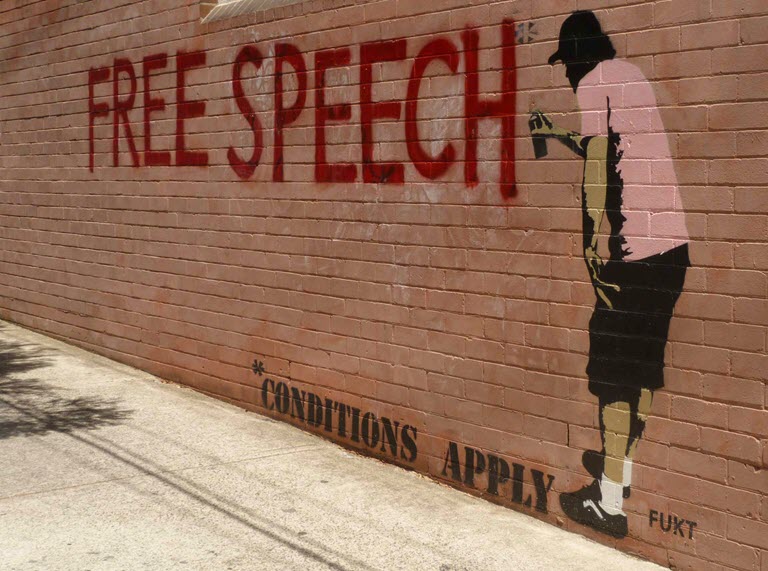
Forum 3 - Sat 18 April
A 'WICKED PROBLEM': RESPONDING TO THE COVID-19 CRISIS
According to one definition, a wicked problem is:
A social or cultural problem that is difficult or impossible to solve for as many as four reasons: incomplete or contradictory knowledge, the number of people and opinions involved, the large economic burden, and the interconnected nature of these problems with other problems.
The COVID-19 pandemic has presented the world with an extreme exemplar of this type of problem. Governments, medical systems and populations all over the world are having to choose among a range of alternatives, all of them bad in different ways, in a state of seriously incomplete knowledge.
We are delighted that a senior epidemiologist has, at very short notice, agreed to participate in a video streaming session where we can discuss the current state of affairs, the ethical and policy dilemmas posed by the pandemic, possible pathways to a best (or least-worse) resolution, and lessons to be learned.
Dr Fiona Stanaway is a clinical epidemiologist in the University of Sydney School of Public Health.
To join click the live streaming link at 4 pm on the day, or click the same link after the event to watch the proceedings.

Forum 4 - Sat 25 April
HEIDEGGER, DEMOCRACY AND THE POWER OF SPEECH
Martin Heidegger’s philosophical critique of modernity encompassed both a questioning of modern liberal democracy and a challenge to prevailing views of speech and language. Heidegger saw modern democracies as subject to alienating forms of technocratic rule and to inauthentic forms of social existence.
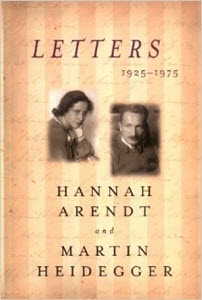 In this talk I examine Heidegger’s critique of modernity and the role of speech in democratic societies, contrasting this with the philosophical ‘corrective’ provided by his student Hannah Arendt. Arendt agreed that modern liberal democracies face the twin threats of technocratic rule and an alienating erosion of genuine politics, but argued strongly that we need to promote the power of public speech and free action as essential to avoiding totalitarianism and saving modern democracy.
In this talk I examine Heidegger’s critique of modernity and the role of speech in democratic societies, contrasting this with the philosophical ‘corrective’ provided by his student Hannah Arendt. Arendt agreed that modern liberal democracies face the twin threats of technocratic rule and an alienating erosion of genuine politics, but argued strongly that we need to promote the power of public speech and free action as essential to avoiding totalitarianism and saving modern democracy.
Robert Sinnebrink is Associate Professor of Philosophy at Macquarie University and an ARC Future Fellowship recipient. Robert's research areas of interest include aesthetics, philosophy of film, phenomenology, critical theory, Heidegger, and social philosophy.
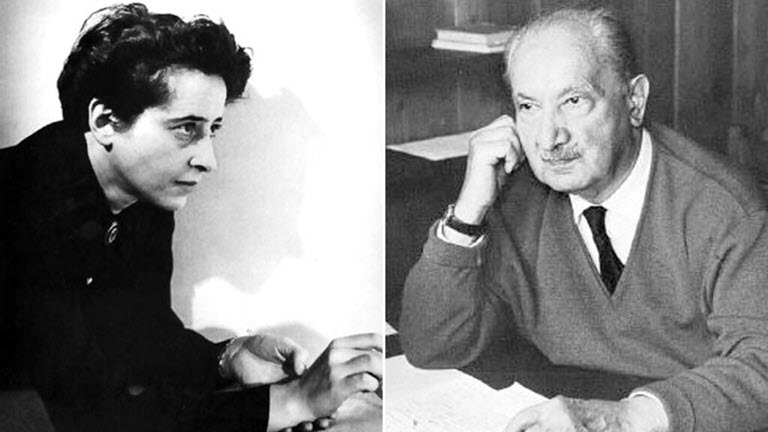
Forum 5 - Sat 9 May
A NEW DARK AGE? EMERGING THREATS TO FREE SPEECH AND THE LIBERAL ORDER
The title of this talk is actually the overall theme we chose for our 2020 series of talks (after some animated discussion).
Since we had a three-week gap in our schedule we thought it would be a good opportunity to discuss the rationale for this theme. Why the concern about a potential impending ‘Dark Age’? In what ways are free speech and the liberal order threatened? What, exactly, might ‘go dark’ and what would it mean to do so? Is such talk absurd and hyperbolic?
Nearly three decades ago the American political theorist Samuel Huntington argued that this century would be marked by civilizational rather than ideological conflicts. In this session forum chair Peter Baldwin will contend that Huntington's thesis is being born out with the rise of two powerful challengers to the liberal democratic order that we have become used to, and complacent about, in the West, to the point where the long-term survival of free societies is put in jeopardy.
He will argue that the ability to resist these challengers is seriously undermined by the ideology of identity politics, which sees little of value in our post-Enlightenment western civilization, to the point of disputing whether such a civilization even exists.
He will discuss these ideas, set out in detail in an article he posted on the forum website a year ago, with local author John Stephenson, and respond to comments and queries posted during the live chat.
To join click the live streaming link at 4 pm on the day, or click the same link after the event to watch the proceedings.

Forum 6 - Sat 23 May
CONTINUING THE DARK AGE DEBATE - A PANEL DISCUSSION
At our preceding event on Saturday 9 May forum chair Peter Baldwin presented a defence of our choice of overall theme for this year's program. He was joined by local author John Stephenson, who posed a series of critical questions to explore the issues further. At the same time, things got quite lively on the chat stream as people added there two-bobs worth as the discussion proceeded, and a number of these entries were highlighted on the video screen for highlighting and response.
However, as usual, only about half of the chat entries could be responded to, and all were subject to the 200-character limit imposed by YouTube. Yet some very important issues were raised that warrant a much more detailed treatment. So we decided to hold a follow-up discussion featuring Peter and a panel of three reflecting the range of opinions expressed by those who posted chat entries.
It also provided an opportunity to introduce the online discussion feature on the forum website. To get things going, the forum chair identified five broad lines of criticism of his talk, and posted a short article responding to each, as well as a full transcript of his talk and all of the raw chat entries. All of these inputs can be viewed, and responded to, by following this link.
Peter Baldwin is chair of the Blackheath Philosophy Forum. He was joined by a panel comprised of Andris Heks, Sheree Waks, and Anthony Carr.
To join click the live streaming link at 4 pm on the day, or click the same link after the event to watch the proceedings.

Forum 7 - Sat 13 June
FREE SPEECH VERSUS POLITICAL CORRECTNESS
Just how free are Australians today to speak their minds about controversial topics?
While speech has never been absolutely free, with long-established laws against speech that incites violence, is defamatory, or a contempt of court, our speaker will discuss a growing plethora of new statutory restrictions. Of most concern are laws that aim to protect certain categories of people from offense or insult, such as section 18C of the federal Anti-Discrimination Act and comparable state laws.
Our speaker will maintain, however, that the problem is much broader: the pervasive mentality, amounting to a system of thought control, that we nowadays label ‘political correctness’. Can an Australian Bill of Rights effectively address these problems?
Michael Sexton SC is the Solicitor-General of NSW.
To join click the live streaming link at 4 pm on the day, or click the same link after the event to watch the proceedings.

Forum 8 - Sat 20 June
THE PARASITIC MIND: INTERVIEW WITH DR GAD SAAD
Please note: Because of the timezone difference between Sydney and Montreal this event will be held at 9:30 am Sydney time.
We are delighted to have as our first international guest Dr Gad Saad, who will be streaming to us from Montreal - university professor, evolutionary psychologist and host of the popular and provocative YouTube channel 'The Saad Truth'. He is well known for his eloquent defences of free speech, reasoned debate and the scientific method, and a scathing critic of modern academic fashions like post-modernism.
In his forthcoming book The Parasitic Mind: How Infectious Ideas are Killing Common Sense he argues that an epidemic of idea pathogens are killing common sense in the West. He unpacks what is really happening in progressive safe zones, and dissects a multitude of these concerning forces (corrupt thought patterns, belief systems, attitudes, etc.) that have given rise to a stifling political correctness in our society and how these have created serious consequences that are undermining our civilization.
Gad Saad is a Canadian evolutionary psychologist at the John Molson School of Business at Concordia University. He holds the Concordia University Research Chair in Evolutionary Behavioural Sciences and Darwinian Consumption
To join click the live streaming link at 9:30 am on the day, or click the same link after the event to watch the proceedings.

Forum 9 - Sat 4 July
FREE SPEECH AND THE CHINESE COMMUNIST PARTY IN AUSTRALIA
With its enormous economic power, China is now a global political and military force engaged in an ideological struggle with the West. Only very recently have we begun to understand the nature and extent of the Chinese Communist Party’s influence operations across the Western world – in politics, business, universities, think tanks and international institutions such as the UN and WHO.
This new authoritarian power is using democratic systems to undermine democracy in pursuit of its global ambitions. The CCP has embarked on a multi-faceted and enormously well-resourced campaign of gaining 'discourse power'. It’s a campaign carried out mostly covertly, but evidence of its scale and effectiveness is emerging around the world, including in Australia.
Clive Hamilton is Professor of Public Ethics at Charles Sturt University in Canberra. He has held various visiting academic positions, including at the University of Oxford, Sciences Po, the University of Heidelberg and Yale University and was for 14 years the executive director of the Australia Institute, which he founded.
Clive’s opinions have been published in the New York Times, Foreign Affairs, Scientific American and the Guardian. His books include Growth Fetish, Requiem for a Species and Defiant Earth: The fate of humans in the Anthropocene. His book on China’s influence in Australia, Silent Invasion, became a focus of public debate when publishing companies rejected it for fear of retribution from Beijing. His new book, co-authored with German sinologist Mareike Ohlberg titled Hidden Hand: Exposing How the Chinese Communist Party is Reshaping the World, was released in June.
To join click the live streaming link at 4 pm on the day, or click the same link after the event to watch the proceedings.

Forum 10 - Sat 11 July
FREE SPEECH, LIBERAL DEMOCRACY AND THE INFORMATION REVOLUTION
Does the emergence of new forms of technology – such as AI, social media etc – have consequences for how we think about the nature of liberal democracy and of free speech, in particular?
In the early days of the internet revolution, there was a belief that new technologies could be used to enhance democratic participation and engagement. However, it’s increasingly clear that not only has this not happened, but there is a sense that it has, in fact, done the opposite.
What are the consequences of these developments for our thinking about the future of liberal democracy and some of the core concepts underpinning it? Do we need to reshape our concepts of democratic deliberation or free speech in light of these developments?
Duncan Ivison is Professor of Political Philosophy and Deputy Vice-Chancellor (Research) at the University of Sydney
To join click the live streaming link at 4 pm on the day, or click the same link after the event to watch the proceedings.

Forum 11 - Sat 25 July
LIBERALISM AND ITS FASHIONABLE CRITICS
Attacks on liberal values are commonly attributed to the influences of 'Cultural Marxism' and Postmodernism. This talk will identify main themes represented by these terms, and assess their credibility. It will be argued, first, that 'Cultural Marxism' is not Marxist, although it preserves the Marxist emphasis on society as a system of oppression – albeit focused not on social class but on 'identities' based on race, sex, sexual orientation, etc. Secondly, it will be shown that characteristic themes of Postmodernist social criticism – 'Difference', 'Power' and 'Desire' – are all, in their different ways, denials of human rationality.
Both of these influences undermine grounds for belief in human equality and rights. This means that, as political critiques of contemporary society, they are self-defeating – committed to values that their theories empty of significance. For a defender of liberal values, the negative task is to bring out these logical consequences. The positive task is to insist on human nature as rational but limited, thereby to satisfy both the requirement of mutual respect and to preserve the space for 'the liberty of thought and discussion'.
Stephen Buckle has taught at several Australian universities and is currently an Adjunct Associate Professor of Philosophy at the University of Luxembourg.
To join click the live streaming link at 4 pm on the day, or click the same link after the event to watch the proceedings.
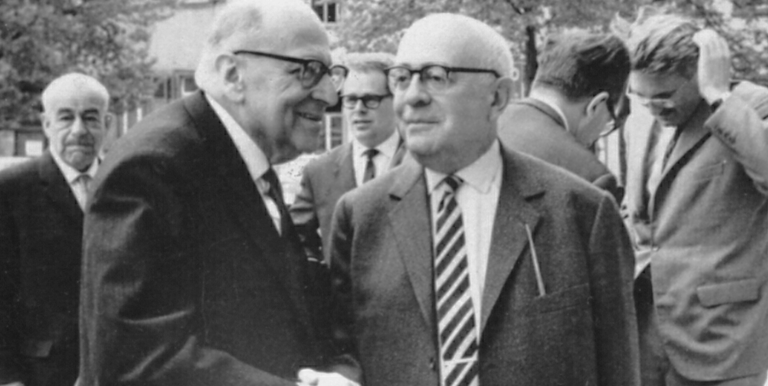
Forum 12 - Sat 8 August
REFLECTIONS ON THE ACADEMIC GENDER WARS
Woman’s Place UK is a group of left wing and trade unionist women fighting against the erosion of women’s rights in the UK. Perhaps surprisingly, they have been branded by the UK Labour Campaign for Trans Rights as a ‘hate group’. In response, members of the Labour party who support WPUK started a movement on Twitter using #ExpelMe, demanding that labour either defend them or expel them.
This is just one of hundreds examples of an ongoing battle among the left over changing understandings of sex and gender. And this battle is just one of many in the greater culture wars where disagreements touching on ‘identity’ provoke disproportionately hostile responses. This talk will be both a report from the academic gender wars, and a reflection on the impacts of these debates on free speech and public deliberative culture. I’ll talk about recent legal cases from the UK that threaten free speech online, and the ‘chilling effect’ of cancel culture within universities in the US, with a particular focus on the way that the gender wars have silenced women.
